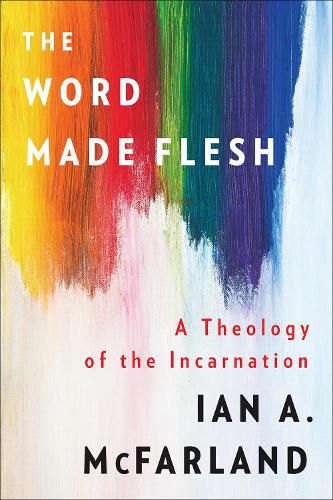Readings Newsletter
Become a Readings Member to make your shopping experience even easier.
Sign in or sign up for free!
You’re not far away from qualifying for FREE standard shipping within Australia
You’ve qualified for FREE standard shipping within Australia
The cart is loading…






This title is printed to order. This book may have been self-published. If so, we cannot guarantee the quality of the content. In the main most books will have gone through the editing process however some may not. We therefore suggest that you be aware of this before ordering this book. If in doubt check either the author or publisher’s details as we are unable to accept any returns unless they are faulty. Please contact us if you have any questions.
Most theologians believe that in the human life of Jesus of Nazareth, we encounter God. Yet how the divine and human come together in the life of Jesus still remains a question needing exploring. The Council of Chalcedon sought to answer the question by speaking of one and the same Son, our Lord Jesus Christ, the same perfect in divinity and also perfect in humanity, the same truly God and truly a human being. But ever since Chalcedon, the theological conversation on Christology has implicitly put Christs divinity and humanity in competition. While ancient (and not-so-ancient) Christologies from above focus on Christs divinity at the expense of his humanity, modern Christologies from below subsume his divinity into his humanity. What is needed, says Ian A. McFarland, is a Chalcedonianism without reserve, which not only affirms the humanity and divinity of Christ but also treats them as equal in theological significance. To do so, he draws on the ancient christological language that points to Christs nature, on the one hand, and his hypostasis, or personhood, on the other. And with this, McFarland begins one of the most creative and groundbreaking theological explorations into the mystery of the incarnation undertaken in recent memory.
$9.00 standard shipping within Australia
FREE standard shipping within Australia for orders over $100.00
Express & International shipping calculated at checkout
This title is printed to order. This book may have been self-published. If so, we cannot guarantee the quality of the content. In the main most books will have gone through the editing process however some may not. We therefore suggest that you be aware of this before ordering this book. If in doubt check either the author or publisher’s details as we are unable to accept any returns unless they are faulty. Please contact us if you have any questions.
Most theologians believe that in the human life of Jesus of Nazareth, we encounter God. Yet how the divine and human come together in the life of Jesus still remains a question needing exploring. The Council of Chalcedon sought to answer the question by speaking of one and the same Son, our Lord Jesus Christ, the same perfect in divinity and also perfect in humanity, the same truly God and truly a human being. But ever since Chalcedon, the theological conversation on Christology has implicitly put Christs divinity and humanity in competition. While ancient (and not-so-ancient) Christologies from above focus on Christs divinity at the expense of his humanity, modern Christologies from below subsume his divinity into his humanity. What is needed, says Ian A. McFarland, is a Chalcedonianism without reserve, which not only affirms the humanity and divinity of Christ but also treats them as equal in theological significance. To do so, he draws on the ancient christological language that points to Christs nature, on the one hand, and his hypostasis, or personhood, on the other. And with this, McFarland begins one of the most creative and groundbreaking theological explorations into the mystery of the incarnation undertaken in recent memory.